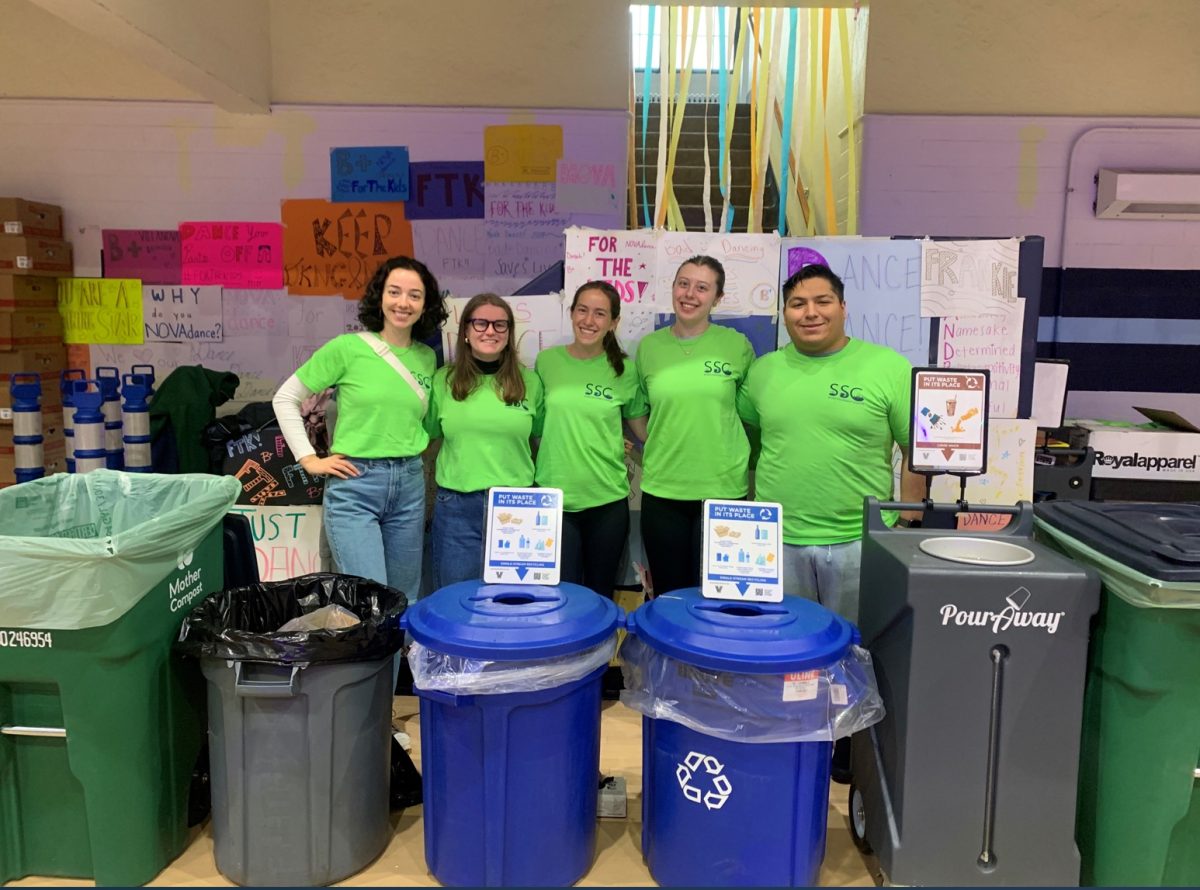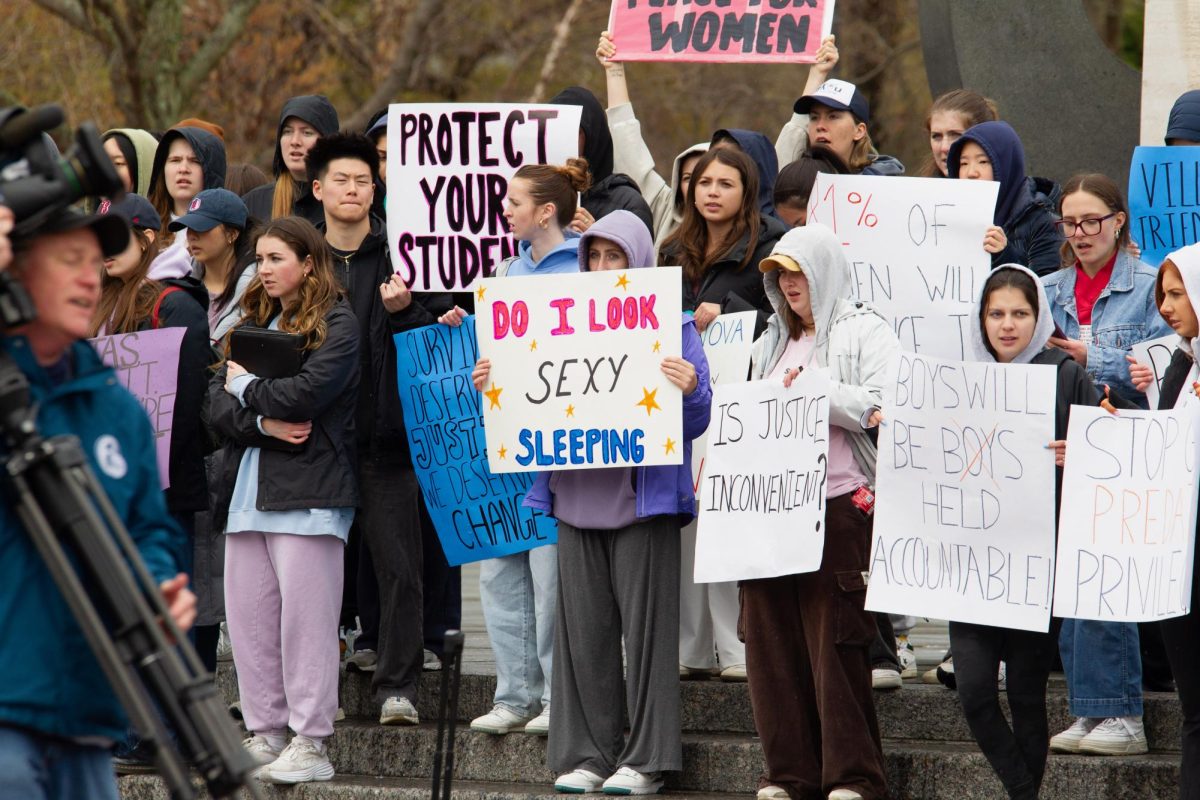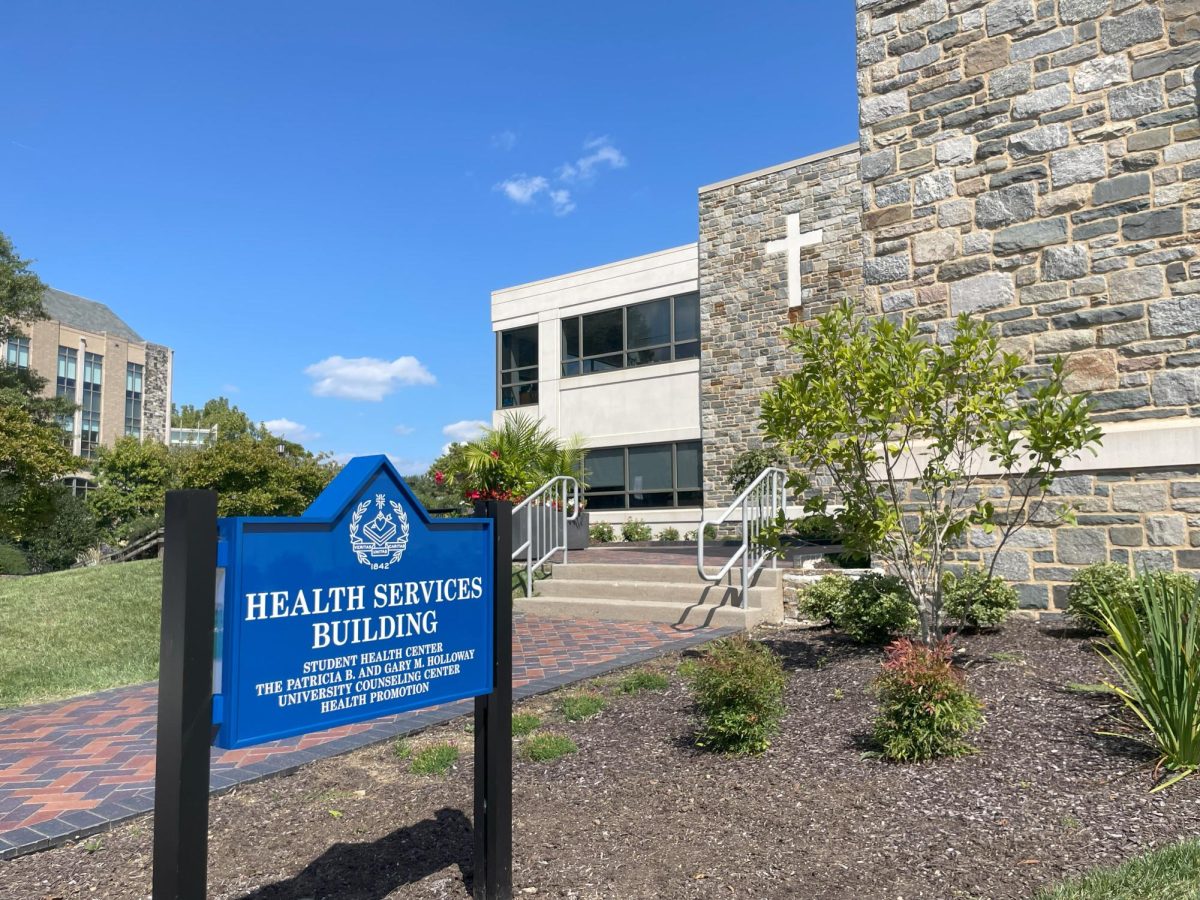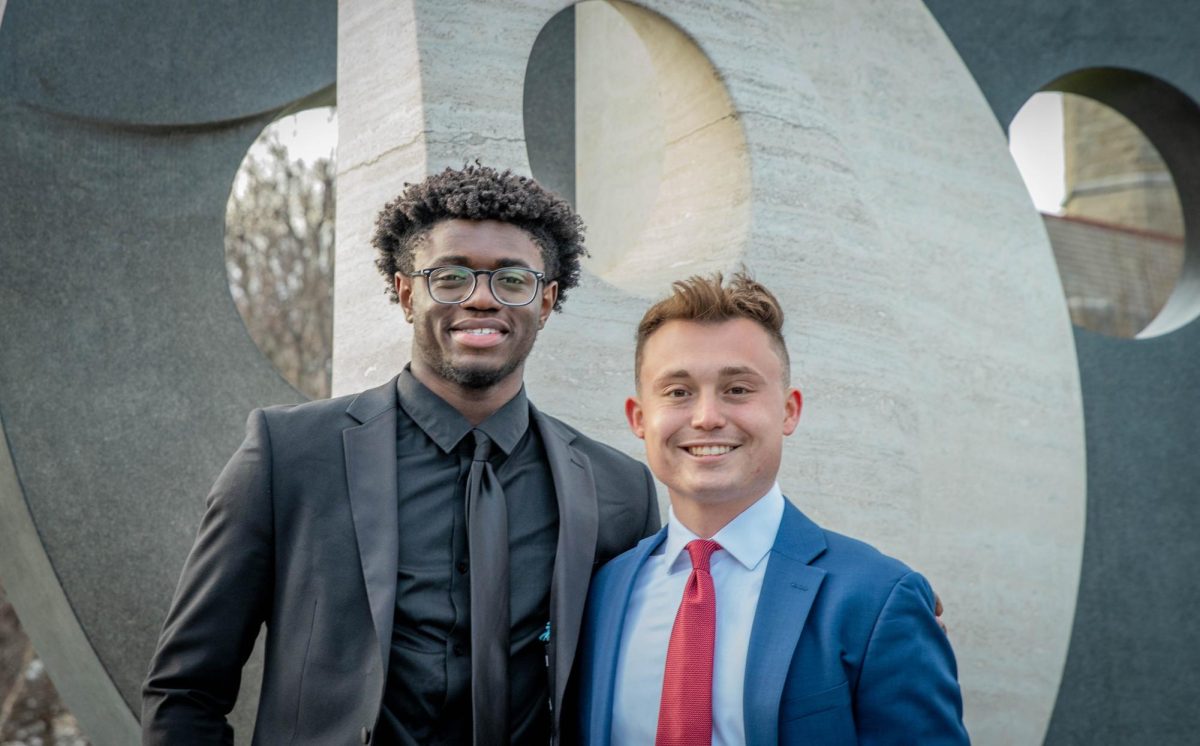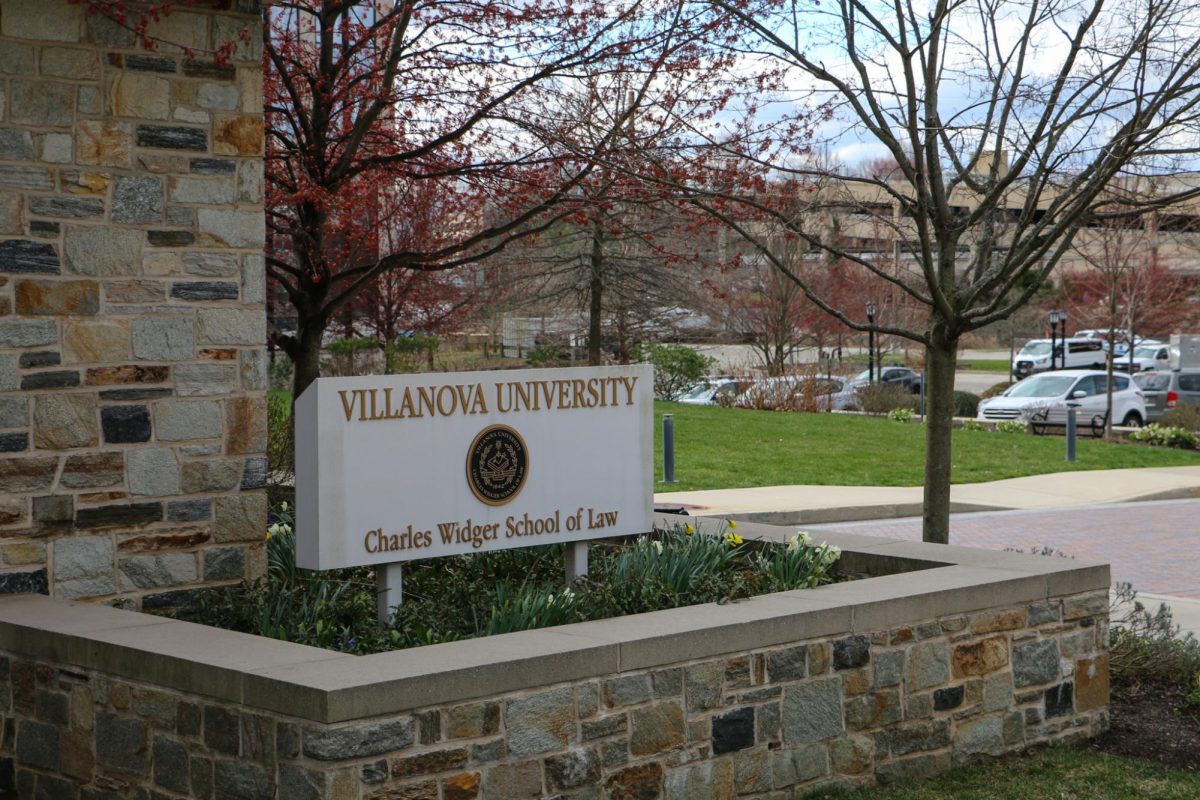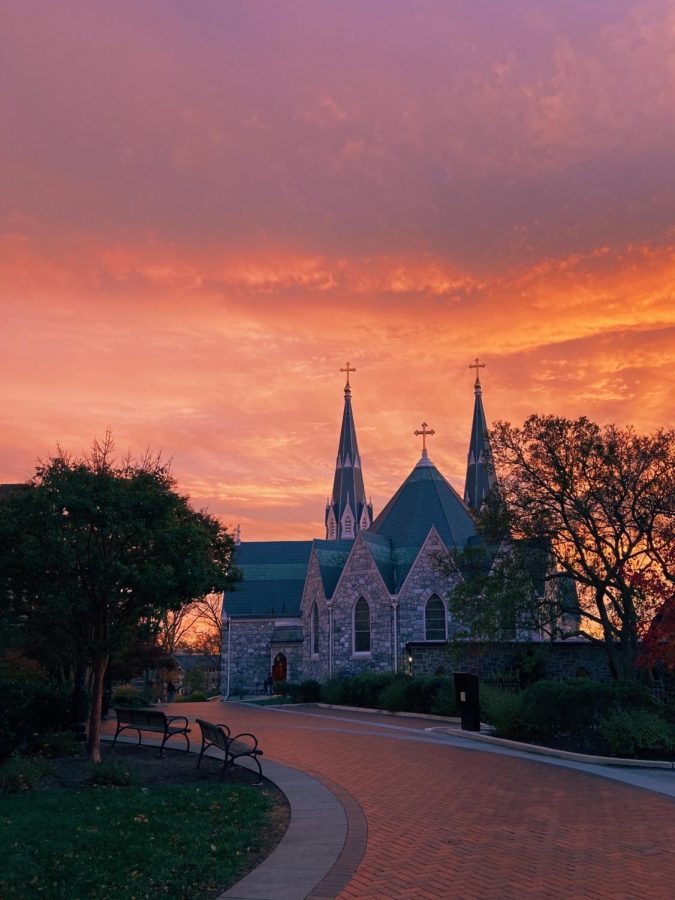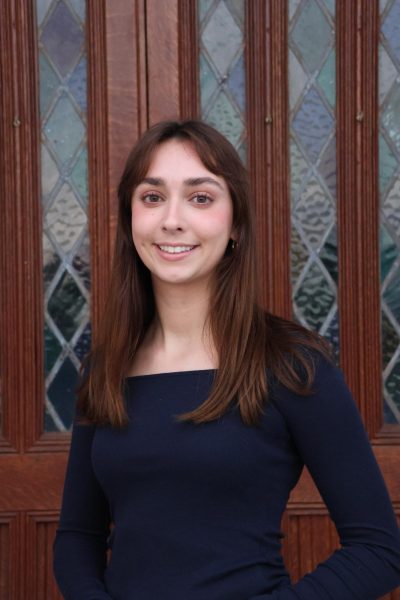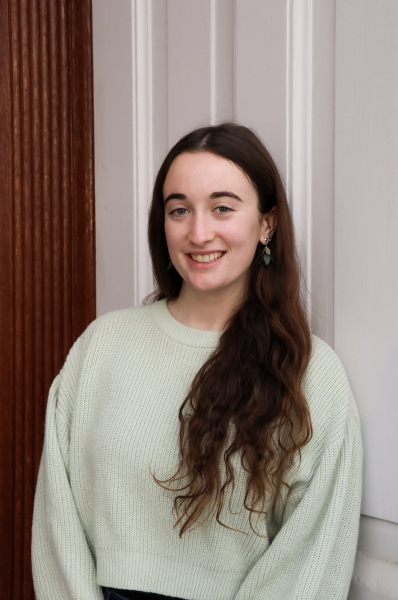Villanova’s Student Sustainability Committee (SSC) has worked tirelessly to promote sustainable initiatives on campus, including spearheading a new program known as “EcoReps.”
The EcoRep student ambassadors work to incorporate sustainable practices into already occurring events on campus. This semester, they tackled NOVAdance, the annual 12-hour dance marathon on campus, championed by individuals and campus organizations to support families battling pediatric cancer. This year, the event’s success was not only evident in the breakthrough of fundraising records, but also in the advancement of sustainability initiatives, culminating in a zero-waste event.
This was a hands-on and collaborative effort. The SSC EcoRep members were seen at the event sporting green t-shirts, representative of their involvement with waste diversion. The team helped to provide knowledge to attendees on how to properly discard their waste. The options included trash, food waste/compost, liquid waste and single-stream recycling bins, watched closely by the EcoReps for guidance.
Al Motel, Villanova’s Waste & Recycling Manager, has provided Villanova with liquid waste bins and compost bins, which were essential in the reduction of carbon emissions, contamination in recycling bins and waste disposal costs. Villanova’s partnership with Mother Compost, a nearby composting center, helped take care of food waste. Another student-led organization, known as the Food Recovery Network, picked up the excess food and donated it to the AIDS Care Group non-profit organization.
The partnership’s success is quantified in the following figures: 154 pounds of waste composted, 203 pounds recycled, 60.8 pounds disposed of as trash, 380 pounds of liquid waste and 999 pounds worth of food donations collected post-event. Additionally, the amount of waste diverted from landfill (including food donations) totaled 97%, a significant achievement for a large-scale event.
The Villanovan had the opportunity to speak with Allie McAllister, Villanova’s Sustainability Manager, about the push to involve the entire student body in sustainability on campus. Her role serves as a point for coordination between campus initiative planning and action.
“I immediately identified Campus Engagement as a cornerstone for embedding sustainability across the University and wanted to find a way to connect the Student Sustainability Committee with other student organizations doing great work,” McAllister said. “I think peer-to-peer engagement is the best way to create synergy around something like sustainability.”
Undertaking such a massive event was no small feat, but it rendered it all the more significant.
“Because the event is so lengthy, with multiple meals served and tons of waste generated, it took a lot of coordination,” McAllister said. “NOVAdance seemed like a great place to execute large-scale composting at a large-scale event. It took a team of volunteers, training, clear communication and a designated waste station where we could monitor the bins during the event. Luckily, we had 23 students on the SSC willing to lead this and NOVAdance [was] willing to give us the space to do so.”
For an event to be considered “zero-waste,” it must minimize the amount of waste sent to landfills or incinerators.
McAllister was able to explain how achieving this label on the event was difficult and required close collaboration between the Waste & Recycling team, custodial staff, NOVAdance representatives and the Food Recovery Network.
“You must weigh all the waste generated and divert a minimum of 90% away from landfill,” McAllister said. “This means that we had to take into consideration the types of waste to expect at the event and the best ways to reduce/reuse/recycle/compost.”
With its dedication to managing environmental footprints, the Office for Sustainability and Student Sustainability Committee’s efforts should not go unnoticed.
As part of the SSC’s executive team and social media management, sophomore Emma Spangler maintained the @villanovasustainability Instagram account and volunteered as an EcoRep, striving to give the topic the visibility it deserves. She offered insight into her role and the impact of sustainable initiatives.
“Campus sustainability means integrating sustainable practices into all aspects of campus life, from operations and infrastructure to curriculum and student engagement,” Spangler said. “It’s about reducing our ecological footprint, promoting social equity and preparing students to be responsible stewards of the planet.”
“The average college student produces [about] 142 pounds of food waste per year, contributing to the overall waste generated by universities,” Spangler said. “This waste often ends up in landfills, where it decomposes and emits methane, a potent greenhouse gas that contributes to climate change.”
Other EcoRep team members commented on the accomplishments made through the partnership.
“Our work with NOVAdance ended up being a really great example of how successful this initiative could be and highlight the ways students can help reduce the impacts of waste,” Ally Szabo, junior SSC Communications Chair, said.
Aidan Dorian, a sophomore SSC member, was excited about the impact of the program, calling it “inspiring.”
“I can’t stress enough how amazing it is that NOVAdance 2024 was zero-waste,” Dorian said. “Mother Compost (our composting partner) accepts a very low contamination rate percent, so all of our eco-reps worked hard to dispose of everything properly.”
While chasing a high after the success of their partnership with NOVAdance, the SSC’s EcoReps are not planning on stopping anytime soon.
“We hope this will serve as an example to other campus activities that sustainability can be seamlessly embedded into event [and] program planning and implemented successfully,” McAllister said. “We plan to scale this up and expand the EcoRep program.”
It is important to be conscious of the environmental impacts that people make, both as individuals and as a university. The Student Sustainability Committee has strived to educate students about waste diversion with the hope that its influence will extend far beyond NOVAdance.
With the SSC’s upcoming initiatives, all Villanovans have a role to play in joining sustainable efforts and becoming a catalyst for creating sustainable change on Villanova’s campus.

